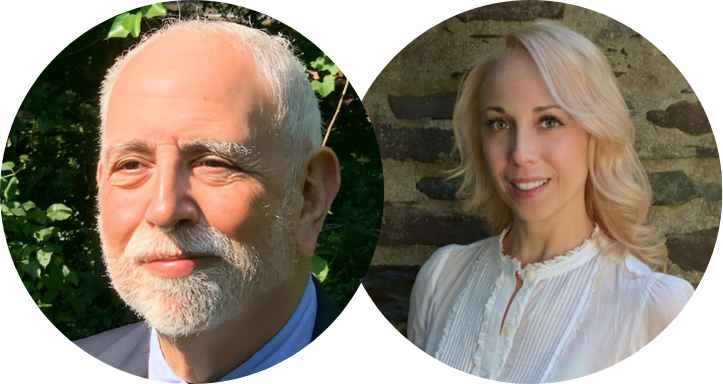MDLPA: Stigma in the Law & Impact on the Forensic Mental Health Evaluation
Presented by: Michael Perlin, JD and Heather Ellis Cucolo, JD

This on-demand professional training program on Stigma in the Law & Impact on the Forensic Mental Health Evaluation is presented by Michael Perlin, JD, and Heather Ellis Cucolo, JD, in partnership with the Mental Disability Law and Policy Associates (MDLPA).
Stigma is best referred to as an aspect of “sanism.” Sanism is an “irrational prejudice of the same quality and character as other irrational prejudices that cause, and are reflected in, prevailing social attitudes such as racism, sexism, homophobia, and ethnic bigotry.”
It reflects discrimination on the basis of one's mental state or condition and is a pervasive stigma that befalls persons with mental disabilities that permeates the legal process. It affects all participants in the mental disability law system, including litigants, fact finders, counsel, and expert and lay witnesses, and its corrosive effects have warped all aspects of mental disability law, involuntary civil commitment law, anti-discrimination law institutional law, tort law, and all aspects of the criminal process.
Especially key here is the relationship between stigma/sanism and trauma in the context of the forensic mental health evaluation. The best remedy for rooting out stigma in the law (in the context of sanism) is a turn to therapeutic jurisprudence (TJ), a school of thought that therapeutic recognizes that, as a therapeutic agent, the law can have therapeutic or anti-therapeutic consequences, and asks whether legal rules, procedures, and lawyer roles can or should be reshaped to enhance their therapeutic potential while not subordinating due process principles Central to TJ are commitments to compassion and dignity, a focus on the quality and effectiveness of counsel, and, for the purposes of this webinar, a special focus on interactions between expert witnesses and those subject to court procedures.
Upon completion of this training, participants will be able to:
Key topics covered in this training include:
The meaning of sanism
Sanism’s pernicious impact on the legal process
How judges and lawyers regularly ignore this impact
The specific relevant issues raised in the forensic mental health evaluation process
How the conscious employment of therapeutic jurisprudence principles is the best palliative for the problems at hand

We are proud to partner with Mental Disability Law and Policy Associates, LLC for this training. MDLPA is a boutique educational training company that offers specialized mental disability law consulting, the creation or enhancement of distance learning programs, in-house or online courses, and day or weekend training seminars to reputable organizations, educational institutions, professional groups, and advocacy groups focused on providing advanced knowledge and skills to persons working with marginalized populations.
Palo Alto University, Continuing & Professional Studies (CONCEPT) is approved by, recognized by, or maintains sponsorship provider status with the following boards and agencies. We maintain responsibility for all content in our CE/CPD programs. For more information, visit here.
American Psychological Association (APA): Approved sponsor of continuing education for psychologists.
Association of Social Work Boards (ASWB): Approved continuing education provider (ACE program, Provider #1480), 11/22/2023–11/22/2026.
Canadian Psychological Association (CPA): Approved to sponsor continuing education for psychologists.
National Board for Certified Counselors (NBCC): Approved Continuing Education Provider (ACEP No. 7190).
Palo Alto University, Continuing and Professional Studies (CONCEPT) is approved by the American Psychological Association to sponsor continuing education for psychologists. Palo Alto University, Continuing and Professional Studies (CONCEPT) maintains responsibility for this program and its content. Palo Alto University, Continuing and Professional Studies (CONCEPT), is approved by the Canadian Psychological Association to offer continuing education for psychologists. Palo Alto University, Continuing and Professional Studies (CONCEPT), SW CPE is recognized by the New York State Education Department’s State Board for Social Work as an approved provider of continuing education for licensed social workers #SW-0356 and the New York State Education Department’s State Board for Mental Health Practitioners as an approved provider of continuing education for licensed mental health counselors. #MHC-0073. Palo Alto University, Continuing and Professional Studies (CONCEPT) has been approved by NBCC as an Approved Continuing Education Provider, ACEP No. 6811. Programs that do not qualify for NBCC credit are clearly identified. CONCEPT Professional Training, #1480, is approved to offer social work continuing education by the Association of Social Work Boards (ASWB) Approved Continuing Education (ACE) program. Organizations, not individual courses, are approved as ACE providers. State and provincial regulatory boards have the final authority to determine whether an individual course may be accepted for continuing education credit. CONCEPT Professional Training maintains responsibility for this course. ACE provider approval period: 11/22/23-11/22/26. Social workers completing this course receive (clinical or social work ethics) continuing education credits.